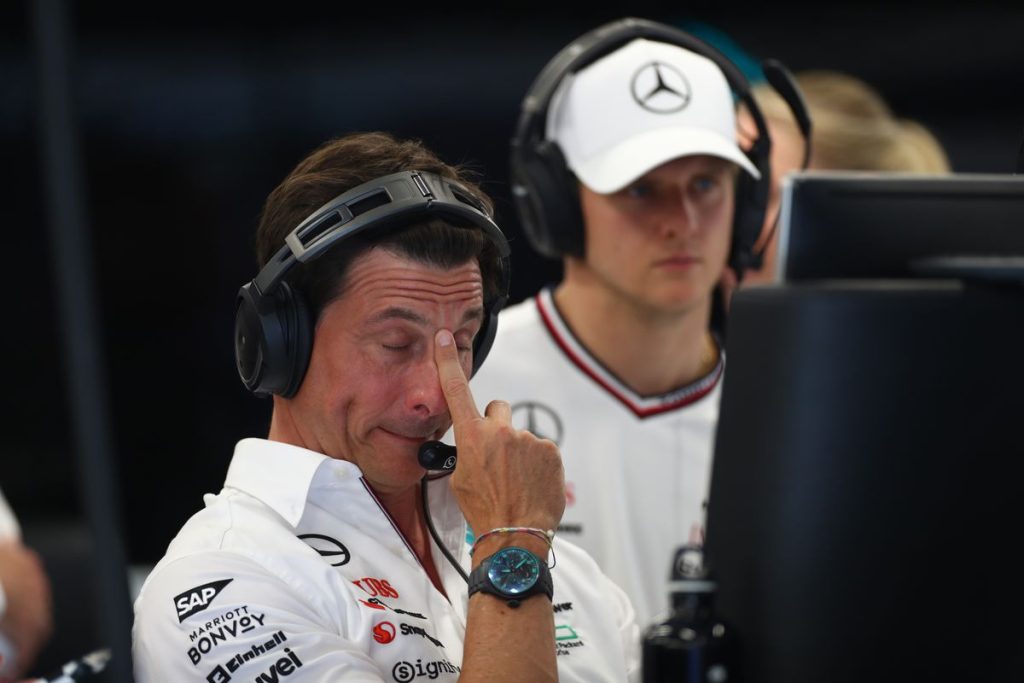Toto Wolff Downplays Mercedes Engine Issues Amid Increasing Retirements – With growing concerns of power unit unreliability echoing in the paddock at the Austrian Grand Prix, Mercedes team principal Toto Wolff addressed the media to halt speculation regarding an engine crisis. Despite recent mechanical failures impacting Mercedes and its customer teams, Wolff emphasized that not every issue is engine-related.
In an interview with Sky Sports after the final practice session, Wolff emphasized that the problems encountered by Kimi Antonelli, Fernando Alonso, and Alexander Albon were not solely caused by engine malfunctions.
“First of all, not all of these issues were engine-related,” he remarked. “There were also defects in the chassis. In fact, I don’t believe Alonso faced an engine issue in Monaco.”
Such a statement might raise eyebrows, especially since Alonso admitted to losing approximately 160 horsepower due to a malfunction in the energy recovery system during the Monaco Grand Prix. While it was indeed a powertrain issue, it wasn’t one that produced visible smoke.
Emerging Patterns: Antonelli, Alonso, and Albon
Nonetheless, the list of technical problems affecting Mercedes-equipped cars is becoming alarmingly lengthy. Antonelli, the youngest talent from Mercedes who was recently elevated to the senior team, experienced prominent mechanical failures in both Spain and Imola—his first two European races. The incident in Spain was particularly frustrating, with technical director James Allison stating, “We still don’t know exactly what caused the power unit to fail.”
At the Brixworth facility in the UK, Mercedes’ engine division is currently analyzing the failed units to identify the root of the issues. Allison confirmed that the usual protocol—dismantle, analyze, diagnose, and ideally prevent recurrence—is in effect. “This will include recommendations for the entire engine lineup,” he noted, referring to both Mercedes’ own teams and their customer teams.
Looking Ahead: The Future Beyond 2026
Despite the current mechanical challenges, Mercedes is focused on the future. Wolff and his team have consistently stated that their primary concern is the 2026 engine regulations. Sources within the Brixworth facility report that development of Mercedes’ new power unit is advancing smoothly, aiming to enter the next regulatory era as a leading competitor.
This optimism is shared, albeit quietly, by some customer teams, although Aston Martin will depart from the Mercedes partnership next year to become a Honda works team, alleviating their long-term concerns about engine reliability.
Balancing Assurance with Reality
Wolff’s statements reflect an effort to manage the narrative surrounding the team’s performance. While he acknowledges some technical difficulties, he suggests that these issues are being overstated. He argues that having a few power unit retirements in a season is typical and that many incidents have not been directly linked to the engines.
However, there is a fine line to tread. Despite Wolff’s reassurances, a worrying trend is emerging, with failures impacting both factory and customer teams, and affecting rising talents like Antonelli as well as prominent drivers like Alonso. Although Mercedes’ power units remain fast, their reliability is now under heightened scrutiny.
For the moment, Wolff and Allison are relying on their traditional approach of engineering precision and forward-thinking. They maintain confidence that with the onset of the 2026 era, Mercedes will reclaim its status as a benchmark in performance rather than one under pressure to explain retirements.



